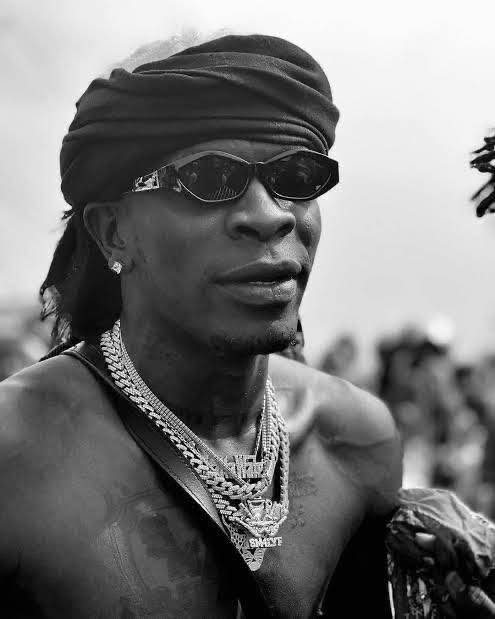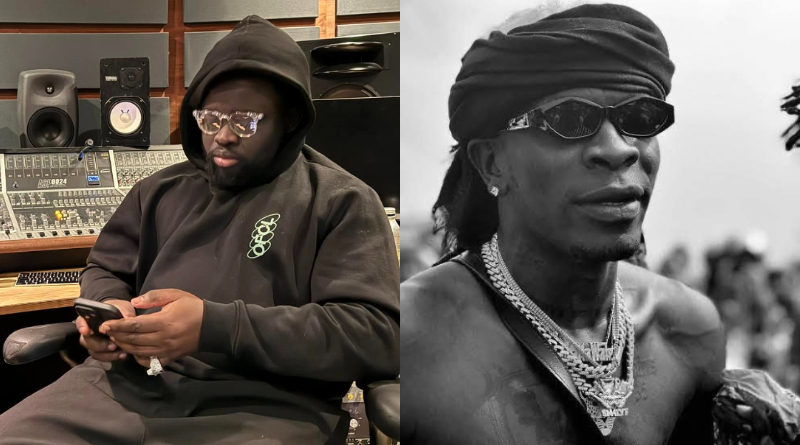Renowned Ghanaian dancehall artiste Shatta Wale is at the center of a major music industry controversy after his Reign and Wonderboy albums were reportedly pulled from digital streaming platforms. The removal follows serious allegations of copyright infringement leveled against him by Ghanaian record producer MOG Beatz.
In a series of social media posts, MOG Beatz accused Shatta Wale of fraudulently taking credit as the producer of approximately 25 tracks that were, in fact, produced by him and several other unnamed producers.

According to MOG, Shatta Wale allegedly replaced the rightful producer credits with his own name before releasing the albums.
MOG Beatz further alleged that the dancehall artiste used these misattributed works to mislead an international company, which in turn helped him generate millions in revenue under false pretenses.
A quick verification on Apple Music revealed that both albums—Reign (released in 2018) and Wonderboy (2019)—have indeed been removed from the platform. The absence signals a tangible impact of the ongoing dispute, raising concerns about how streaming platforms handle intellectual property complaints. Other platforms may follow suit as the controversy unfolds.
The allegations have sparked heated debate within the Ghanaian and broader African music industry. Observers argue that the case underscores the urgent need for stronger intellectual property protection, fairer recognition of producers, and transparency in artist-producer agreements.
Industry analysts point out that producers often play a critical yet underappreciated role in music creation. When they are denied proper credit or royalties, it not only damages their careers but also sets a harmful precedent for the creative ecosystem.
As of now, Shatta Wale has not issued a public response to MOG Beatz’s claims. His silence has left fans, critics, and industry stakeholders speculating about the validity of the accusations and the possible legal ramifications.

Legal experts suggest that if MOG Beatz pursues the matter formally, it could result in lawsuits for copyright infringement, misrepresentation, and financial damages. The dispute could also prompt industry reforms, pushing for more stringent producer credit verification systems across streaming platforms.
This case highlights a recurring challenge in the Ghanaian music industry, where disputes over royalties, credit, and ownership are often settled informally or brushed aside. MOG Beatz’s decision to go public may set a precedent for other producers and songwriters to demand their due recognition.

For Shatta Wale, a pioneer in promoting Ghanaian dancehall music globally, the allegations could tarnish his reputation if proven true. For MOG Beatz, the controversy amplifies his call for accountability and fairness in a system that has historically undervalued producers.
As the story develops, fans and stakeholders alike will be closely watching for Shatta Wale’s official response and any potential industry-wide reforms that might emerge.




